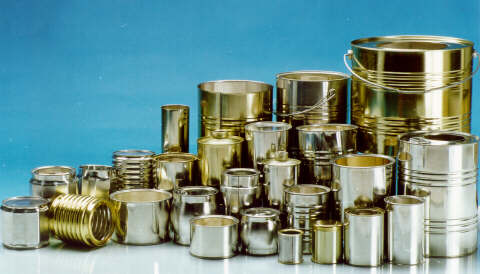| Orthodox Conversion to Judaism |
| Telling if a product is kosher... |
| Looking for the hecksher (marking that denotes it as kosher) and for the statement of whether a product is dairy, meat or parve, or for questionable ingredients listed on the label, are necessary procedures. Make sure it is a reliable hecksher; one should familiarize themselves with the hecheshers where one lives. Common hechshers in the US are OU, Star-K, Circle-K and Chaf-K, but there are more. Ask your local orthodox rabbi for a list. A plain 'K' is not a hecksher. Also insure the food is not processed in a factory where non kosher products are also pepared and the same machinery is used for both. Many chips and tuna falls under this category even though some of the products have a reliable hecksher. The food produced in such a factory is non kosher, unless a reliable mashgiach supervises the kashering of this equipment. Some companies use different groups for their products if they have dairy and non dairy products, and they run them on seperate lines. (Like celestial seasonings tea. Be carefull! Some of their teas are dairy!! The dairy and the non dairy teas are run on seperate lines and supervised seperately) Many additives used to enhance flavor, texture or color of food are not kosher. Their names are aften technical or vague e.g. 'natural flavors', with the result that we don't knowexactly what they are. All additives must also be processed on kosher equipment for the product to be kosher. Processing agents, release agents, a,d other substances, often of animal origin, are technically not considered 'ingredients' and usually are not listed. For example, oils and fats used to coat the pans for baked goods are not listed as ingredients and are often not kosher. Oils or shortening must be certified kosher or parve. According to government standarts, an ingredient may be listed as vegetable oil or shortening even when containing a small percentage of animal fat. Not all ingredients are necessarily listed. If an ingredient falls below a certain percentage of the content, the government does not require it to be listed on the label. The ingredients of a product may have been slightly altered, yet the manufacturer is allowed to continue using the same labels until new ones are printed. Manufacturers of certain products, such as ice-cream, are not required to list ingredients at all, and therefore may list them selectivly. Israeli products, which need special supervision, are often used by large companies. We would never be aware of their presence simply by reading the label. |
| You must check foods to ensure that although they are parve in nature, that they do not contain dairy. Example of this are, my personal favourite: Non Dairy Creamer and also Tuna. Non dairy creamer is particular in most cases dairy. Usually in Jewish stores you can find non dairy creamer that is truly non dairy. This would cause an accident if you had it after a meat meal so it's best to avoid it, I also feel this way about the dairy teas. |
 |